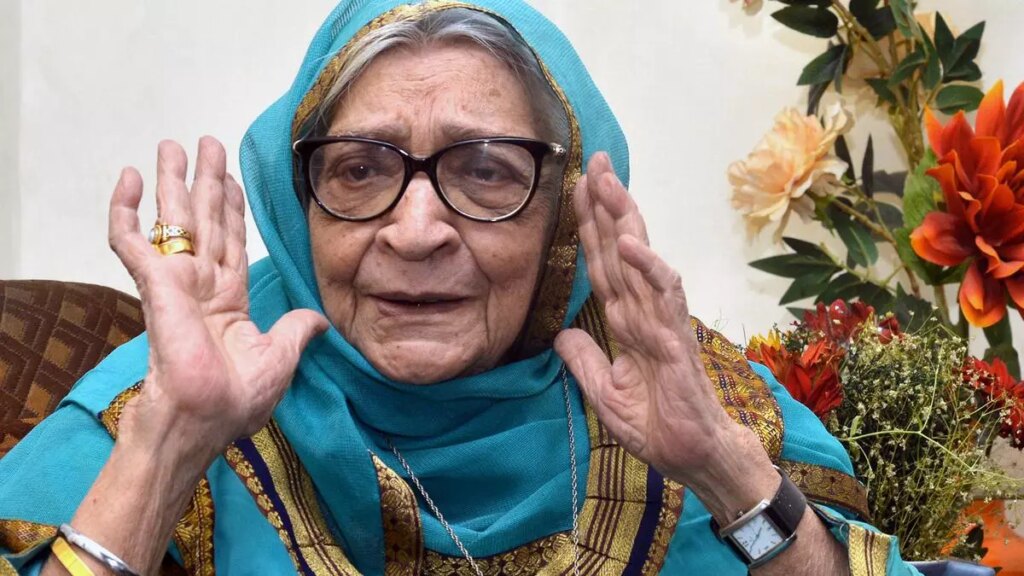What is originality? Is there even such a thing? Or is all of art a series of new brushstrokes over an already existing painting? Is it the absence of influence or is it the courage to twist tradition into something unrecognisable?
Every artist builds upon what came before them. But some do more than inherit. Some break away so completely that they force a new shape into being. Krishna Sobti, born on February 18, 1925, did not write to fit within literature’s long tradition. She wrote to destroy its comfort.
Tearing through the decorum of literary Hindi, she cut and shaped it with the rhythm of speech, the rawness of dialect, the unapologetic boldness of lived experience. To read her is to feel the urgency of art right here, right now, living, pulsating, something that refuses to be contained.
Also Read | Sukrita Paul: ‘Krishna Sobti carved out space for women’
Her stories are not driven by language. They drive the language. And what is language if not power, if not control? Language dictates who gets heard and who does not. Language decides who gets erased, forgotten, or simply left behind. Language validates your lived experience.
For decades, Hindi literature suffered these moulds: tamed, disciplined, forced into boxes of standardised, Sanskritised “purity”. Sobti set the whole thing on fire. Her Hindi was a living language. It carried the earthiness of Punjabi, the musicality of Rajasthani, the fluidity of Persian, the intimacy of Urdu. Her language was not that of the sanitised observer; it was of a person knee-deep in living.
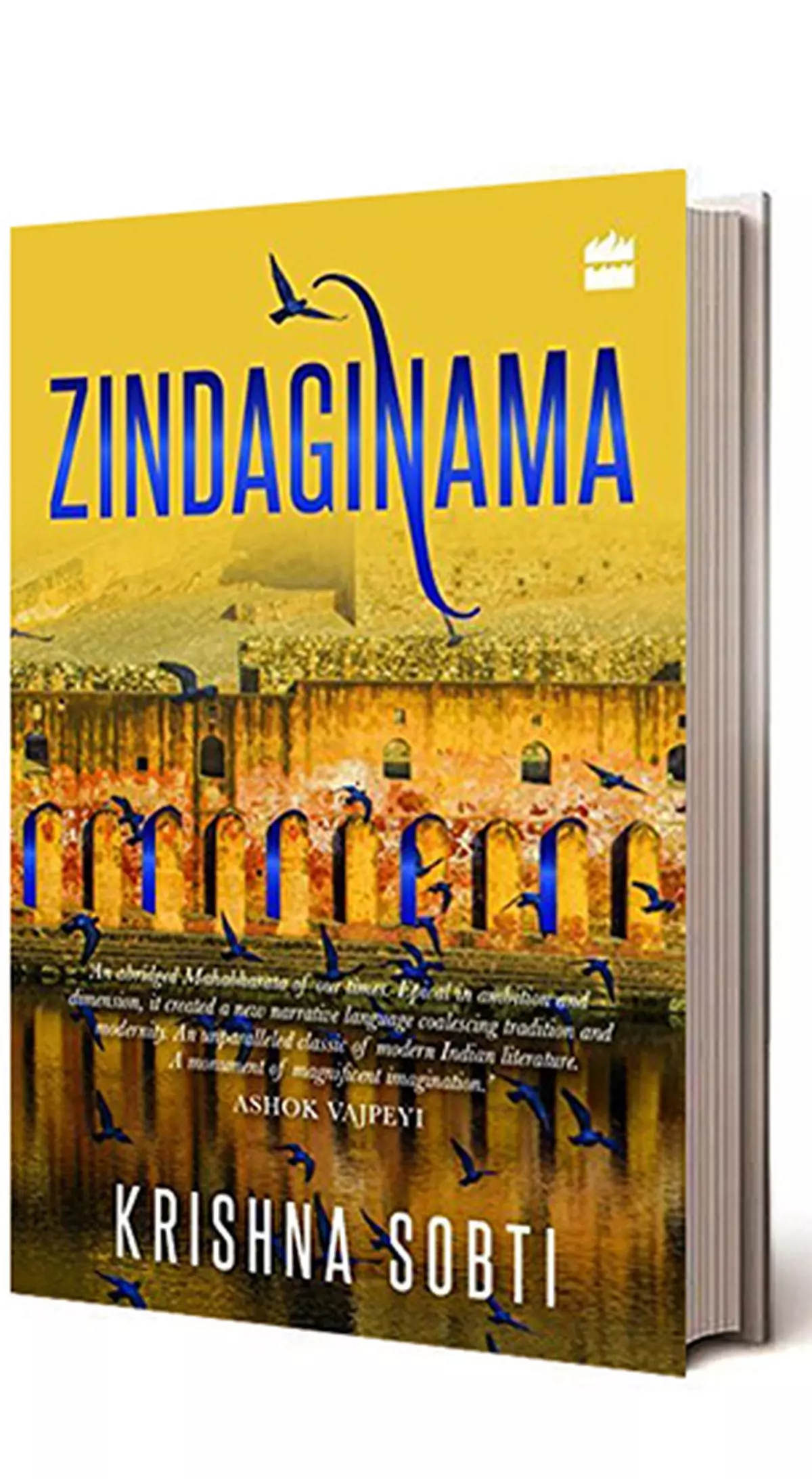
Zindaginama (1979, translated into English by Neel Kanwar Mani and Moyna Mazumdar in 2016), arguably her magnum opus, is the mirror, the testament to it. The novel is a collision of voices, a text that rejects domestication and spirals away from being bound to a single narrative. It is a village, a time capsule, a sprawling, living organism. Open its pages, and you can hear the loud, overlapping voices, feel the dust-heavy air, walk through the cluttered bazaars where Jat farmers trade rough jokes, Muslim merchants haggle in Urdu-inflected Hindi, Brahmin scholars speak in a measured cadence.
Zindaginama is oral history turned literature—talking in every tongue it once knew—keeping the unkept stories and the dialects laughing and crying boisterously, unabashed, unashamed, unbound.
But Sobti’s fight was not limited to dialects. It was also for who gets to speak. And how. And how much. If Zindaginama unsettled the linguistic gatekeepers, her Mitro Marjani (1967, translated into English in 2006 by Gita Rajan and Raji Narasimhan as To Hell With You Mitro) sent shock waves through the moral police of Hindi literature.
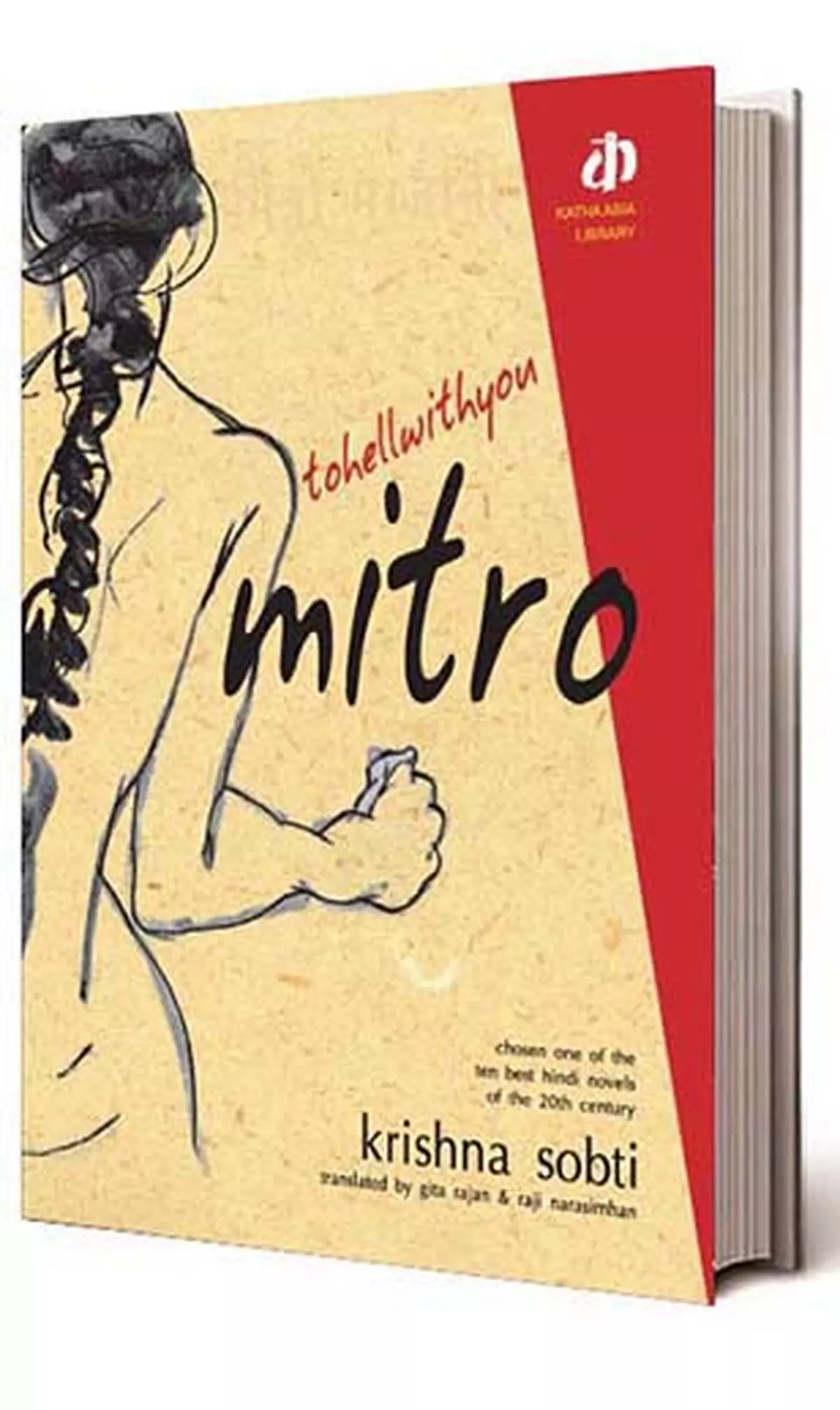
“Good women” did not speak like this. They suffered, they longed, they wilted. They did not laugh about sex. Sobti did not care. She ripped off the literary chastity belt they strapped onto women’s voices. What happens when a woman refuses to shrink? When she laughs too loudly? Loves too fiercely? Desires without shame? “Is deh se jitna jas-ras le lo, wahi kati kamaai hai [Whatever nectar and renown you can extract from this body, that is your only true earning].”
Hindi literature had a script for women: they longed quietly, suffered beautifully, sacrificed without complaint. Desire—if acknowledged at all—was something to endure, not pursue. Then came Mitro, who shredded the script. She is fire, bare skin, unfiltered hunger. She demands. She takes. She mocks her husband’s incompetence in bed. She flirts shamelessly. She speaks in a vocabulary that Hindi heroines were not meant to understand, let alone talk in. Vulgar, they called it. Shameless. Obscene. Blasphemous. But Mitro was never meant to be polite. She was meant to be true to life. Why did she unsettle them? Because she wanted. And she refused to apologise.
Sobti understood something fundamental: that desire is not just physical. It is political. A woman who speaks of hunger threatens the entire order. Because in a world where sex is about duty, where pleasure belongs to men, where women are supposed to blush, Mitro bites.
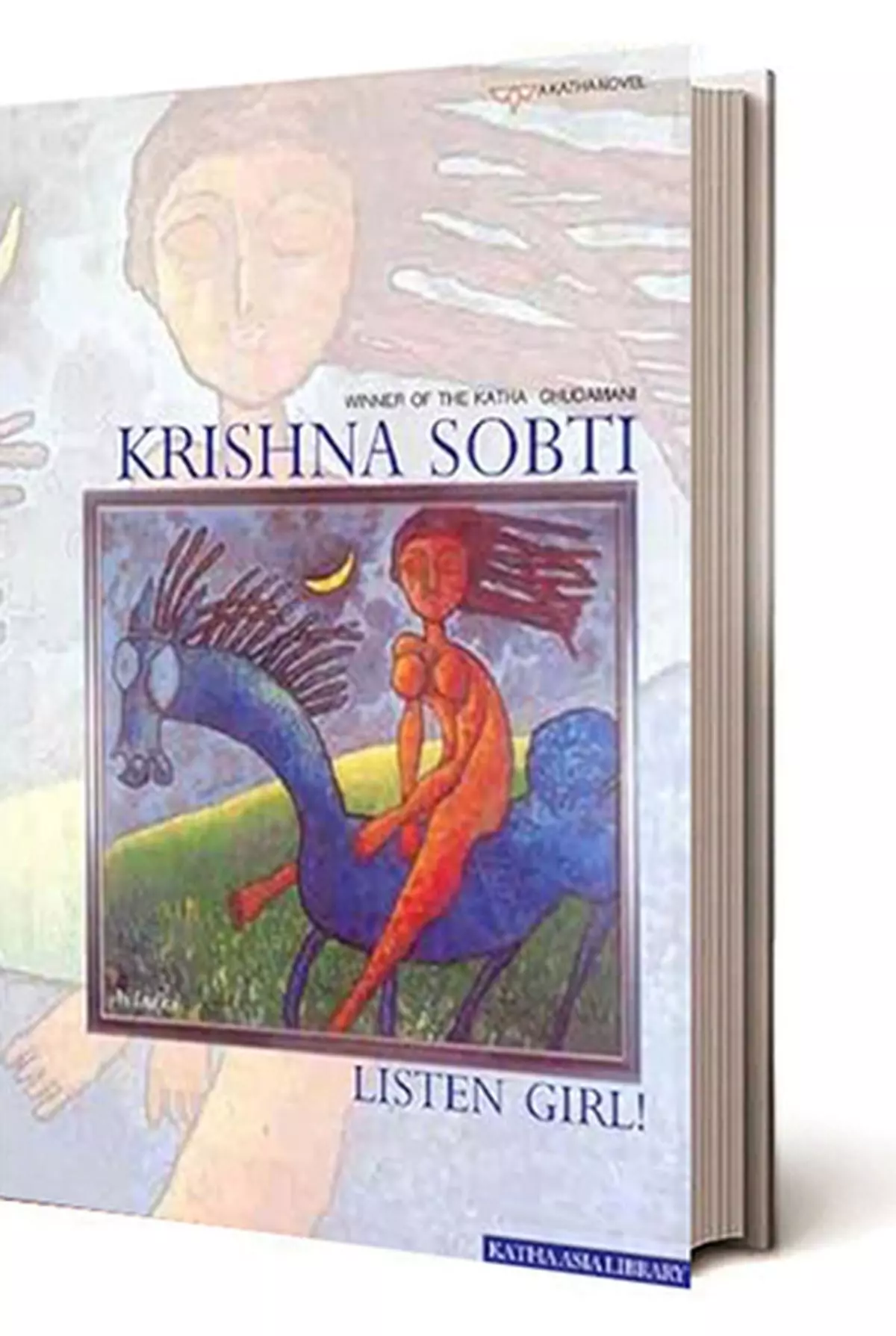
As the protagonist of Ai Ladki (1991, translated into English in 2002 by Shivanath as Listen, Girl) says: “Maa paida karti hai. Paal pos kar bada karti hai. Phir usi ki qurbani! Ma ko tukdo mein baantkar parivar use yahan wahan phaila deta hain. Kaaran toh yahi na, samuchi rah kar kahin utt khadi na ho [A mother gives birth. She raises and nurtures. And then it is her sacrifice! The family divides her into pieces, scattering her here and there. The reason, isn’t it, that if she remained whole, she might rise again?]?”
Surajmukhi Andhere Ke (1972, translated into English in 2008 by Pamela Manasi as Sunflowers of the Dark) takes Sobti’s exploration of the female body somewhere darker, deeper, and infinitely more brutal. If Mitro Marjani was about a woman seizing control of her body, Surajmukhi Andhere Ke is about what happens when that body is stolen. Ratti is a survivor of childhood rape. But Sobti refuses to write a palatable victim. Ratti is not quiet, nor resigned. She is angry. Erratic. Violent. Unapologetically broken.
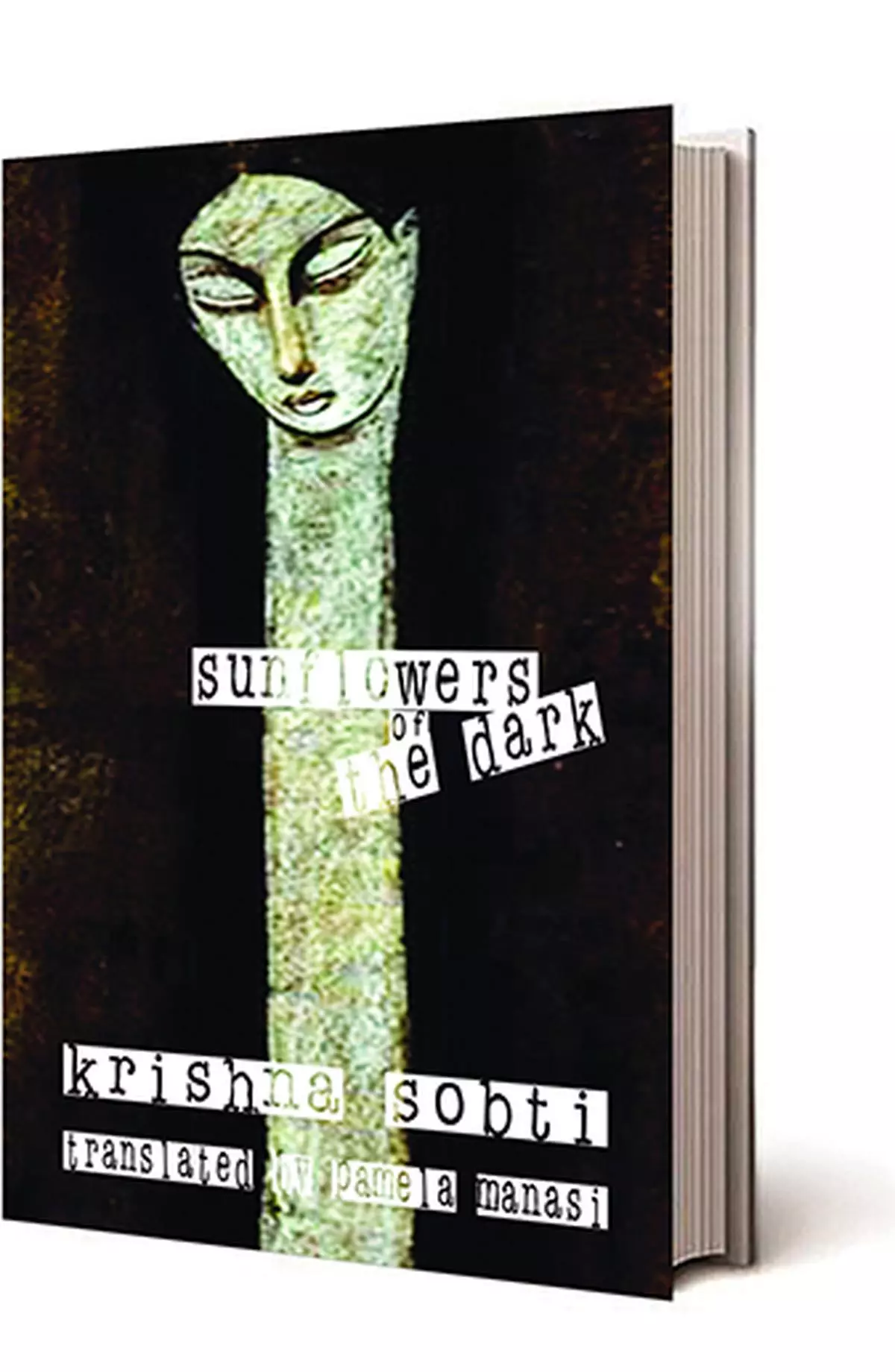
In this book, Sobti does not give us the ideal victim. She does not soften the edges of trauma. She does not make Ratti easy to love. Ratti is volatile, reckless, destructive. She does not seek redemption or healing. She does not cry for sympathy. She fights. She lashes out. She wounds and sabotages and self-destructs. What is a woman allowed to do with her pain? She is expected to suffer quietly. To move on. To not make others uncomfortable. But Ratti rebuffs. She does not conform to the literary archetype of the noble victim. She is messy. Angry. Uncontrollable. She sabotages herself but refuses to be pitied. This is Sobti at her most unforgiving.
She does not write for comfort. Because for many women, that comfort does not exist. From Mitro Marjani to Surajmukhi Andhere Ke, Sobti’s women barf and balk at being contained. They are messy, sharp, desiring, damaged, angry, alive. And in writing them, Sobti lets women be loud (and not just have a voice). Some wounds do not scab over. They fester. Some histories do not settle. They keep shifting under your feet, refusing to stay still. Partition, for instance, was a fracture that kept on, keeps on, rupturing.
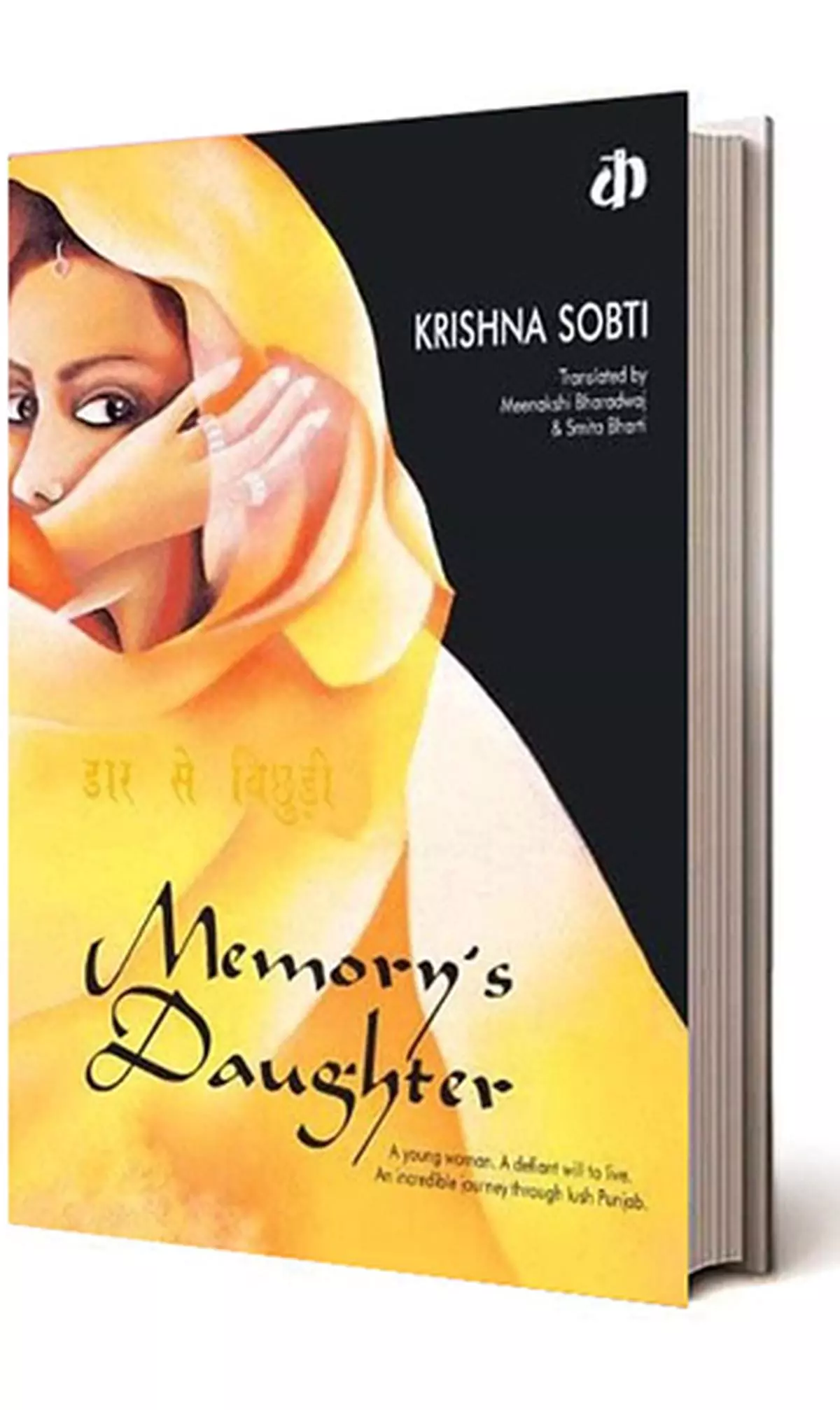
In her first novel, Daar Se Bichhudi (1958, translated into English by Smita Bharti and Meenakshi Bharadwaj as Memory’s Daughter in 2007), Sobti rebels against the borders of language itself. Like Sobti’s prose, Pasho’s world does not fit into neat categories. She does not belong. Not to her mother’s world. Not to her father’s. Not to her husband’s. Not even to herself. She exists in exile, even at home. Sobti moves between Hindi, Urdu, and Persian as easily as Pasho moves between her fractured identities. Partition tried to split the subcontinent and carve clean borders where there were none. But language did not work that way now, did it?
Sobti wrote in the language of the streets, of the refugees, of those who had lost everything but their voices. For those who have no land, language is the only home left. For one day, you wake up, and the land beneath your feet is foreign. One day, the currency in your pocket is worthless. One day, the faces you have known your whole life look at you like a stranger. That is Partition. Home is now a border crossing. Your own body is foreign soil. You move through life like a refugee trapped inside his/her own skin.
If Daar Se Bichhudi is about the violent displacement of identity, Sobti’s short story “Sikka Badal Gaya” (The Currency has changed) is about subtler, more insidious betrayals. The erosion of belonging. It succeeds in capturing the tragedy that history does not record: The moment a home stops feeling like home. No grand massacres. Just a neighbour who no longer smiles back. A shopkeeper who hesitates before handing you change. A familiar street that suddenly feels unsafe. Not an exile from land, but an exile from trust. What is the price of being uprooted? There is no number, but there is a story. For that is the only currency that lasts.
Zindaginama captured a Punjab before it was split. Daar Se Bichhudi chronicled the displacement that followed. “Sikka Badal Gaya” mourned the quiet, everyday betrayals that Partition left in its wake. But in Gujarat Pakistan Se Gujarat Hindustan (translated into English in 2019 by Daisy Rockwell as A Gujarat Here, a Gujarat There), Sobti is staring into the abyss of repetition. The same old playbook of sectarian hate. The same brutal silencing of dissent. The same ghosts circling back—never exorcised, only waiting.
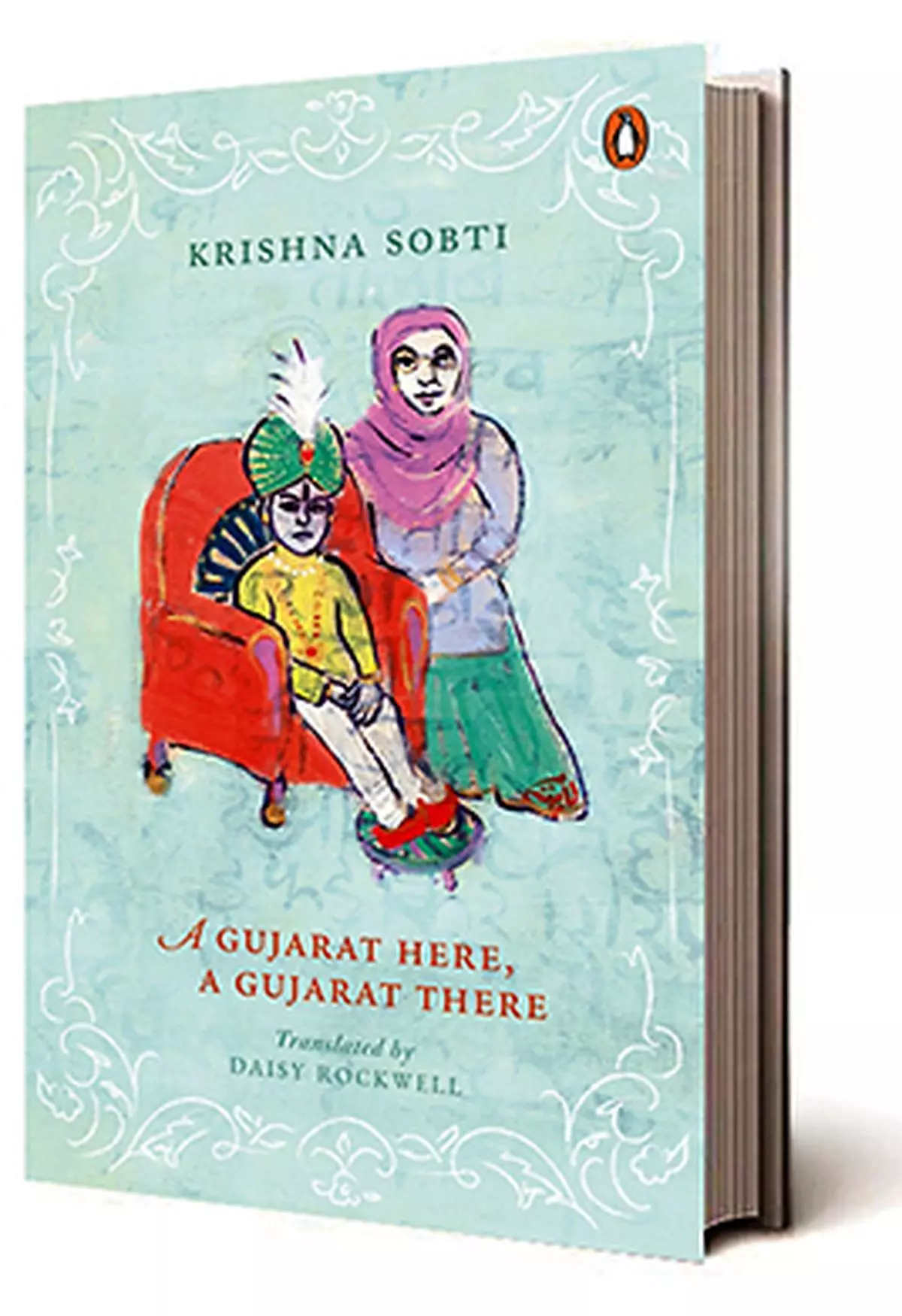
For Sobti, Partition was an unfinished sentence, a wound that kept reopening. She ran from it, but it was always waiting. It was in the languages she spoke, in the absences she felt, in the cities she could never return to. It went beyond the lost land. It was about lost language, lost intimacy, the unthreading of a shared past. She wrote about it with a ferocity that came from knowing she would never get it back. The land she was born in was locked behind a door.
Some writers push boundaries. Krishna Sobti shattered them. Some writers negotiate with power. She laughed in its face. Rather than seeking permission, she claimed space. Rather than merely breaking the rules, she questioned their very existence. In a world where women were told to be careful, polite, and restrained, Sobti wrote like a storm, spoke like a fire, and lived like a force of nature.
“In a world where women were told to be careful, polite, and restrained, Sobti wrote like a storm, spoke like a fire, and lived like a force of nature.”
Her words were hers. Not up for debate. Not up for negotiation. Not for sale.Her words were hers. Not up for debate. Not up for negotiation. Not for sale.
In 2015, as India’s political climate turned hostile to dissent, Sobti returned her Sahitya Akademi Award, sending a clear message: if freedom of expression was under siege, she wanted no part of the system that enabled it. And then, of course, there was her rejection of the Padma Bhushan in 2010. For most writers, this would be a crowning moment, a badge of honour from the state. Sobti? She turned it down outright. Not as a gesture. Not as a protest. But because no government, no institution, no committee could “validate” her worth. Her legacy did not need a stamp of approval.
She fought for her words. She fought for her voice. And she fought for a country that would have the courage to listen. In a world that rewards obedience, she remained gloriously, unapologetically defiant.
Writing is often seen as a cerebral exercise. Sobti brought it back to the physical, the tangible, the elemental. She was not the kind of writer who simply let the words flow. No, she wrestled with them, tested them, made them prove their worth. She knew language had to be earned.
Also Read | A defiant life
Few writers would dare to rewrite an entire novel from scratch. Sobti did it multiple times. She felt she had to earn the weight of the story, the authority of its voice. For a writer who let dialects clash, defied conventional storytelling, and allowed her characters to breathe and speak without censorship, Sobti was immensely disciplined in her process.
She respected the labour of writing. She knew it was not about waiting for inspiration. It was about showing up every single day and doing the work. Her books may have been free-spirited, almost improvisational, but they were built on the foundation of unyielding rigour and precision. Every word she put down was a challenge. A fight. A rebellion.
Krishna Sobti did not believe in closure. Her books do not end. They resist neat resolutions, final words, full stops. They are alive: questioning, refusing to settle. Even as her body aged, her writing only sharpened. She had watched India transform—from the euphoria of Independence to the disillusionment of the present. But she did not write in longing. She wrote in anger. She saw it all. She warned against it.
Because silence is complicity.
Because the story is far from over.
And Sobti, even in death, even on her centenary, refuses to be silent.
Amritesh Mukherjee is a reader, writer, and editor fascinated by the stories that shape our world.
Source:https://frontline.thehindu.com/books/krishna-sobti-hindi-literature-feminist-writing-zindaginama-partition-sahitya-akademi/article69207099.ece

